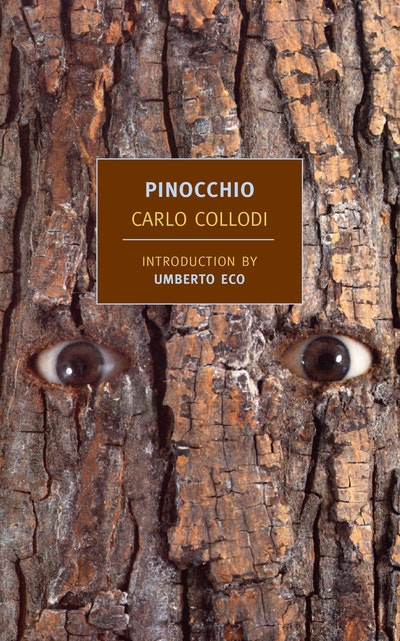[]
- Published: 15 December 2008
- ISBN: 9781590172896
- Imprint: NY Review Books
- Format: Paperback
- Pages: 208
- RRP: $29.99
Pinocchio
Formats & editions
Buy from…
- Published: 15 December 2008
- ISBN: 9781590172896
- Imprint: NY Review Books
- Format: Paperback
- Pages: 208
- RRP: $29.99
"From time to time [Collodi's] high-stepping narrative is marked by moments of real poetry...Luckily there's no need to choose between Disney's version of the tale and Collodi's: we can have both. But if such a choice were necessary, I suppose I'd opt for the original--by, as it were, a nose." --The Atlantic "[Most people] know Pinocchio only from the sentimentalized and simplified Disney cartoon, or the condensed versions of his story that are thought more suitable for children. The original novel by Carlo Collodi...is much longer, far more complex and interesting, and also much darker. The critic Glauco Cambon has called it one of the three most influential works in Italian literature. For him, and those who know the real version, The Adventures of Pinocchio is not an amusing, light-hearted fantasy, but a serious fable about art and life. It is a story about growing up--and it is also, in essential ways, a story about growing up poor and Italian." --Alison Lurie, NYRB
"From time to time [Collodi's] high-stepping narrative is marked by moments of real poetry...Luckily there's no need to choose between Disney's version of the tale and Collodi's: we can have both. But if such a choice were necessary, I suppose I'd opt for the original--by, as it were, a nose." --The Atlantic "[Most people] know Pinocchio only from the sentimentalized and simplified Disney cartoon, or the condensed versions of his story that are thought more suitable for children. The original novel by Carlo Collodi...is much longer, far more complex and interesting, and also much darker. The critic Glauco Cambon has called it one of the three most influential works in Italian literature. For him, and those who know the real version, The Adventures of Pinocchio is not an amusing, light-hearted fantasy, but a serious fable about art and life. It is a story about growing up--and it is also, in essential ways, a story about growing up poor and Italian." --Alison Lurie, NYRB









